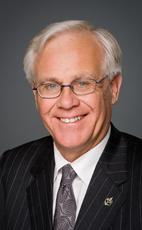Mr. Speaker, I will be splitting my time with my colleague, the member for Chatham-Kent—Essex.
I am pleased to participate today in the debate on the motion before the House to extend Canada's continued engagement in Libya.
From the outset, Canada has shown international leadership and has been at the forefront of efforts to secure freedom for the Libyan people. We have come together as Canadians, both in the House and across the country, to support the protection of civilians in Libya, protection that we as Canadians often take for granted, protection that the Libyan people have been without for so very long.
The level of support from the international community has been overwhelming, beginning with the endorsement of the UN Security Council Resolutions 1970 and 1973. There have been regular meetings of the contact group on Libya and, just last week, the Secretary-General of the United Nations hosted a meeting of several heads of state, attended by Canada's Prime Minister, to discuss the situation in Libya.
We have led the way in humanitarian, diplomatic and military support to the Libyan people and their cause. Our men and women in uniform have gone above and beyond the call of duty in this mission.
Libya today is very different from the one that existed when I last spoke to the motion that was before the House in June. Most of the Libyan people, including those in Tripoli, have been freed from the control of the Gadhafi regime. Much progress has been accomplished but Libya is not out of the woods yet. The new Libya is vulnerable. Its needs are urgent.
While the humanitarian situation in much of the country has stabilized, civilians still continue to suffer in the remaining pro-Gadhafi strongholds, including Bani Walid and Sirte. Heavy fighting has exacted a serious toll on Libyan families. In some cases, Gadhafi forces are forcefully preventing people from seeking refuge elsewhere. In several towns around the country, Libyans are without water, electricity, phone coverage or medical assistance. Medical supplies are in short supply and there are severe shortages of antibiotics and anesthetics. We remain deeply concerned by reports of the use of sexual violence as a weapon of war and restrictions to humanitarian access. Efforts are ongoing to secure full, safe and unhindered access to the conflict affected areas so that these crucial needs can be met.
The crisis has not only affected those in Libya. The actions of Gadhafi forces have led to the displacement of thousands of Libyans and migrant workers into neighbouring countries, including Tunisia, Niger and Egypt. The welfare of these refugees and migrants is a serious concern, with migrant transit centres also running out of food and having to manage without water or electricity. Many migrant workers want to leave Libya but do not have the means, or simply, they have nowhere to go.
As Libya moves toward a period of recovery and rebuilding, Canada will continue to monitor the humanitarian situation and respond to the needs as they arise in Libya or on its borders.
Canada will continue to be an active and willing participant in the transition to a new Libya. This is a message that was delivered by the Minister of Foreign Affairs when he visited Benghazi in June.
At the beginning of this month, we secured the unfreezing of roughly $2.2 billion of Libyan assets held in Canada and in Canadian institutions. After having fully assessed the situation on the ground in Tripoli, we have re-established our diplomatic presence in Libya, reopening our embassy in a temporary location.
For Canada, the challenge is clear: to help Libya stabilize so that it can build a solid political foundation for democracy and a strong platform for economic growth.
As we look ahead, it is not our place to tell Libyans how to reconstruct and build their country. On a structural level, the economy must begin to generate jobs, commerce and revenue. Politically, Libyans will move toward elections, a new constitution, justice and security systems. The National Transitional Council is mapping out plans to achieve this and we will support it.
In the immediate future, it will be important for the NTC to send early signals to the Libyan people that change is underway by providing citizens with basic services and security.
Timing is critical but so is effective assistance. Through experience, we have learned that successful stabilization requires a coordinated and coherent approach. Canada has led the call for international coherence to ensure that our aid money is effectively spent and supportive of local efforts on the ground.
We will continue to work with out international partners to help support a made in Libya approach to stabilization. Our immediate objective is short-term and focused: to help Libya stabilize and to help the NTC get on with the job of building a new and free Libya. The capacity is there.
The NTC has identified a road map to begin the work of building a democracy and a strong economy. On August 10, it issued a constitutional declaration which paves the way for elections and democratic governance.
The declaration sets out a plan that envisages a transition period comprising eight months under NTC direction, followed by 12 months under a new general national assembly, with general elections expected roughly 18 months after liberation.
The NTC has asked the international community for support but it is determined, as are we, that the process should be Libyan-led.
Our government stands ready to respond. Our support will be focused, targeted and disciplined. Our support will adhere to the findings of the UN-led needs assessment process. Our support will be coherent within the framework established by the NTC and the United Nations, and with other key donors. Our support will help enable Libyans to take back control of their country.

